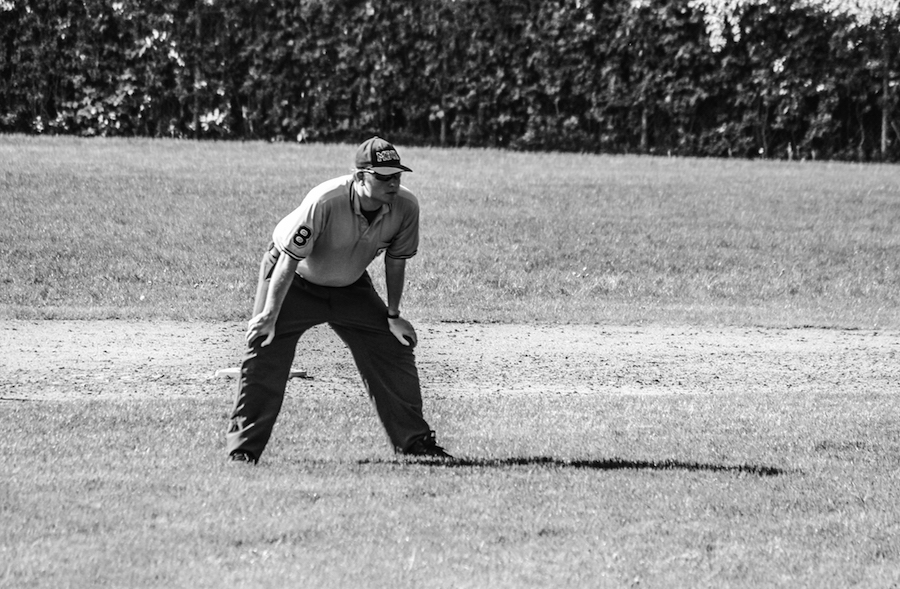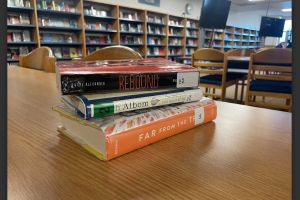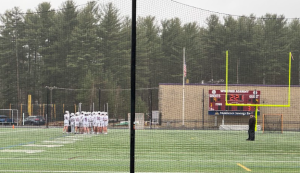Scott Cruikshank behind home plate
Photo by Stephen Townsend
June 1, 2017
While many WA teachers have pastimes outside the classroom, very few attend to part-time jobs during the school year. Of those do, none are quite like psychology teacher and part-time Massachusetts umpire Scott Cruikshank.
Beginning his umpire career in only the sixth grade, at twelve years old, Cruikshank said that he had started purely out of the fascination taken from trying something new, along with an interest in sports.
“I started when I was in the sixth grade, at twelve years old. I was at Blanchard, and in homeroom they handed out notices and flyers to all of us- one of them said ‘Do you want to be a baseball umpire? Come to the library [and] take these classes […] it seemed interesting and I liked sports so I figured ‘why not?’ I’ll give it a try,” Cruikshank said.
A try was indeed given. Although he began umpiring Little League baseball, it was not long before Cruikshank was “patched”, a term used to describe the iconic umpire shirt patch one is given after being registered at the state level.
“I started working for the Westford town Little League for four years, and then I took the statewide test, and got certified to do higher-level games. I was sixteen years old when I got patched […] Now I do youth leagues through high school baseball,” Cruikshank said.
Despite the fact that he has umpired games for students in the past, distancing teacher-student bonds from impartiality on the diamond has not been a problem for Cruikshank. Once game time starts, Cruikshank assumes a team oriented perception of plays, allowing acknowledgement of individual players to temporarily vanish.
“When you’re on the field, you don’t really see them [players] as individual people- you just see them as teams. When the batter comes up to plate, I don’t think ‘oh that’s John,’ I just see him as another batter up to plate. You kind of put all personal relationships aside when you’re working and you really don’t notice them as people until after the game,” Cruikshank said.
Cruikshank sees his part-time job as much more than a pastime or side-gig to his teaching career. Being a sports official has been a major facet of Crukshank’s life- one that, according to him, has shaped his character as a teenager, as an adult, gives him entry to the world of sports without needing to be an athlete.
“I was never a big athlete, so this is a way to be part of the game without having to be a player […] it [also] sort of forces you to grow up. When I was sixteen or seventeen years old, I had to deal with coaches who were two, three times my age. Some coaches like to intimidate umpires, and when they know that there’s someone really young as an umpire, they’re going to use that to their advantage. I had to grow up very very quickly, and deal with parents even when I was twelve,” said Cruikshank.
“You have to be objective as an umpire. It teaches you how to manage people. As a teacher, you need to manage students, and if you want to go into business, you need to know how to manage [as well]. Those skills that you learn as an umpire you can take with you to pretty much any career,” he said.







